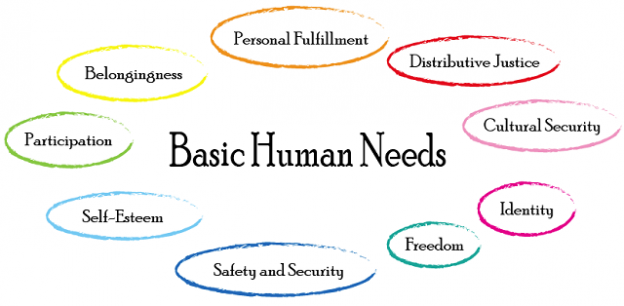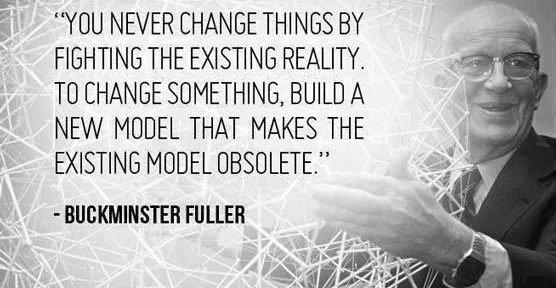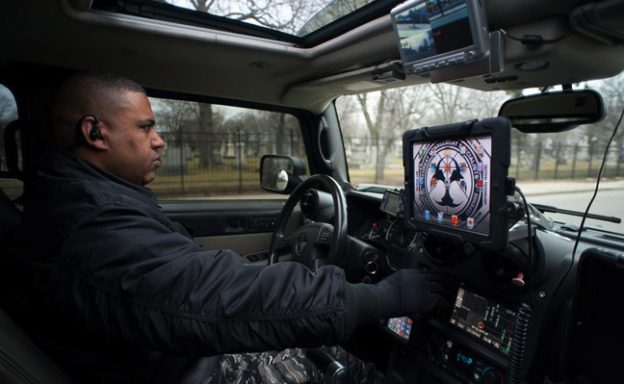Making Voluntaryism More Appealing to Your Neighbors
 I ended a recent post, “Government Appeals to Your Better Instincts“, with this suggestion for improving our success in spreading Voluntaryism:
I ended a recent post, “Government Appeals to Your Better Instincts“, with this suggestion for improving our success in spreading Voluntaryism:
If attacking the logic or morality of Government makes people unconsciously uncomfortable with our message, perhaps we would accomplish more by simply sowing seeds of doubt – illustrating Government’s actual record of failure relative to achieving the goals of our common drives.
And, finally, to affect real change, we must begin to consistently tie Voluntaryism into people’s visions of satisfying their core drives. Rather than discussing the mechanics of providing roads, we need to convince them that in a voluntary society they will have better food, and safer communities, and more opportunities for their children.
I really like this new blog by Shawn Gregory. I think it is an excellent example of employing this approach…
Libertarians And The Poor: A Missed Opportunity?
When the general public pictures a typical libertarian, they might imagine that person to be intelligent, analytical, but they generally don’t think of libertarians as particularly compassionate. In fact, from the perspective those who are most needy, (i.e. the poor), libertarians tend to seem indifferent, if not outright hostile. After all, libertarians challenge things like safety nets and minimum wage laws as an overreach of the government – an immoral use of force on otherwise peaceful people. Based on these notions, a poor person may get the idea that libertarians are against everything that governments do to help them. From this point of view, the general anti-government sentiments that libertarians espouse become synonymous with anti-poor sentiments, and if libertarianism is to gain any traction going forward, it must be adopted by a larger segment of the poor and working class.
Unfortunately, for the many who do not dig very deeply beyond this superficial perception, this anti-poor stigma will remain firmly attached to libertarianism, but for the few who are willing to listen, we libertarians often miss an opportunity to explain our ideas in a way that would better resonate with the average poor or working class individual. Rather than painting a positive vision of how libertarian ideals benefit everyone, including the poor, we tend to focus on the equally important anti-State case that condemns much (if not all) of what governments do. Even while making the anti-State argument, we could do a better job of explaining how governments are not the friends of the people that they claim to be.
For example, consider security – the one function that most people across the political spectrum agree that government should provide, (this author not included). As most people recognize, the security that the State provides comes with a whole host of other laws and regulations that have nothing to do with security at all. From the war on drugs to prostitution to crackdowns on “illegal” lemonade stands, the standard and correct libertarian line is that it’s not the State’s business to interfere with what consenting individuals do, and that it is the State that commits a crime when it bars individuals from participating in consensual activities.
While this is true – I’ve made this exact point many times – it should also be noted that these policies actually hurt the poorest among us the most. The war on drugs is largely waged on people who live in low income neighborhoods, turning these areas into virtual war zones. Between SWAT teams raiding homes to street gangs fighting for drug turf, the effect of this government policy is to make the poor people who are affected by it far less secure than they would otherwise be. Ending the drug war would dramatically decrease the number of poor people in prison due to the disproportionate enforcement of drug possession laws, and would significantly reduce the prevalence of violent gangs due to the inability of those gangs to fund their activities via drug sales.
Similarly, allowing consenting adults to engage in activities like prostitution or unlicensed cosmetology would keep those activities above ground, making the circumstances under which those services are performed more open to public scrutiny and therefore more secure. It is no coincidence that organized crime thrives on these kinds of banned activities. Government prohibitions make such activities more profitable and far more dangerous for everyone involved.
Clearly, there is a case to be made for drastically reducing government provided security. Yet, it is also true that criminals will always exist and that they are far more likely to congregate in poor neighborhoods. So, when libertarians take their anti-State philosophy to it’s logical conclusion and suggest that security need not be provided by government at all, are we simply suggesting that the poor should fend for themselves against the very real threats that the face on a daily basis? Absolutely not. In fact, I believe strongly that the poor would be much better off without government provided security.
Imagine a security team in your neighborhood that you don’t fear when they approach you. Imagine a security team that believes their job is to make sure that you go home to your family, whether or not they make it home to theirs. (Contrary to the popular notion that government police are there to “protect and serve” the public, the reality is that “officer safety” trumps your safety legally and by policy.) Imagine a security team that is trained to defuse a potentially violent situation in hundred different ways. Now, imagine this service being provided largely for free to people in poor neighborhoods. Sound to good to be true? It’s already happening on a small scale:
What we emphasize is one hundred ways – in a situation that would normally be fatal force oriented – a hundred ways to not have a violent or fatal incident take place. We perform twenty-four hours a day, seven days a week. We protect communities here in Detroit – upscale communities, like Palmerwood, Sherwood Forest, and The Golf Course. We have approximately a thousand homes that depend on us for safety, responding to them and their family and emergencies, and we have approximately five hundred businesses that are our clients as well. And then, the people who can not afford our services, we help them for free, and the reason we can do that is because there is a healthy profit margin left over from excellence from providing for our major corporations.
It should be noted that this particular organization works with like-minded law enforcement. However, as a rule, they try to avoid using the legal system as much as possible. As Dale Brown, the founder of the Threat Management Center, explains, his whole service is based on a true desire to protect the people that they serve and not on the kind of bully mentality that often pervades government security forces. Dale Brown and his team get paid to actually protect people not just to drive around menacingly in rough neighborhoods. That, I believe, would be the fundamental difference between what we have now and what we could have with privately provided security.
Take note also that poor folks in these neighborhoods are getting the benefits for free which I also believe would be fairly commonplace as building owners, landlords, and local businesses would cover the costs of these kinds of services. After all, if they want people to live in their neighborhoods and shop at their stores, it will benefit them to make sure that their customers can do so in a safe environment.
This is the vision that poor people should have in their minds when they think of libertarianism – not just a philosophy that’s anti-State, but a philosophy that envisions all of humanity thriving in a much freer future. And, the people who will see the most dramatic change for the better are the people are likely the ones who are the poorest among us today.








